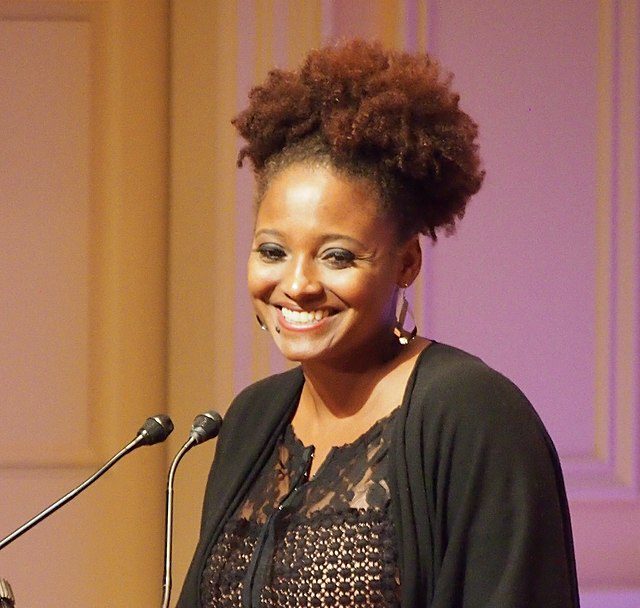Tracy K. Smith delivers 2023 Foundational Course Lecture
In continuation of a new Yale English tradition, the former U.S. Poet Laureate read a number of her poems on Tuesday evening.

Wikimedia Commons
Harvard professor and Pulitzer-winning poet Tracy K. Smith delivered the Yale English Department’s annual Foundational Course Lecture to a packed lecture hall on the evening of April 11.
The series was established in 2018 in order to expose current and prospective Yale English students to the poetic voices of recent generations. Last year, Nobel winner Louise Glück delivered the lecture. The series caters especially to students in ENGL 125, 126, 127 and 128, the department’s core courses for completion of the major.
”When I read a poem, I know there’s a piece of the poet I’m getting, and then there’s a piece that’s bigger and different from the poet that’s in there,” Smith said at the lecture. “I don’t think I’m what you get if you read that poem — I hope you get you.”
Smith — Susan S. and Kenneth L. Wallach Professor at Harvard Radcliffe Institute, 2012 Pulitzer Prize winner and 2017-2019 U.S. Poet Laureate — was introduced by Marc Robinson — acting director of undergraduate studies for the department — and Richard Deming — the director of creative writing.
In his introduction, Deming said that there is a “collective urgent need” for Smith’s work and noted the inherent collectivity to poetry, the “need to be urgently human” that it instills in readers.
Smith took the podium to rousing applause.
“I always feel so much more heartened and hopeful about the world when I’m in spaces where people like you are telling me about what they’re caring about, what they’re working on,” Smith said. “We desperately need that.”
Smith read a number of poems both original and translated, spanning a two-decade career in poetry. She began with a selection of translations from Chinese poet Yi Lei’s “My Name Will Grow Wide Like a Tree: Selected Poems.” Li died in 2018, in the midst of her translative collaboration with Smith.
Smith moved next to a series of pieces from her 2021 collection, “Such Color: New and Selected Poems,” which has been distributed to students currently enrolled in foundational courses.
According to Deming, the collection speaks to the power of poetry — its ability to “[pinpoint] our attention in a moment and to the moment where we are.” Smith’s words articulate difficult reflections about the past while creating a hopeful vision for the future.
“We, all of us, together, have a need to look unblinkingly at the past — its griefs, its wreckage — acknowledge all that it encompasses and then find a way forward,” Deming told the News. “Throughout her book… she builds out of the act of bearing witness — in details and specifics — the possibilities for hope, for joy. Her poems show that the work is still out there in front of us.”
She spoke to a number of difficulties in her craft — the constraints and necessities of form, the use and confusion of negative space and the finicky necessity of loosening the iron grip she is sometimes inclined to hold over her work at its inception.
Smith’s reading was followed by a question and answer session and a reception outside the lecture hall.
English major Madeline Poole ’25 left the reading with a new appreciation for Smith’s work.
“It was a privilege to hear her own interpretations of her creations, and the process she undertakes to produce them: how she considers form, and how she pushes her poems from repeating what she already knows,” Poole told the News before rushing off to hunt for her own copy of “Such Color.”
This year’s Foundational Courses Lecture was held in the Humanities Quadrangle.







